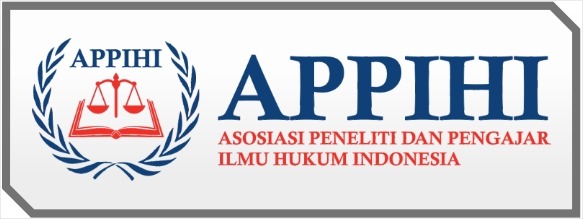The Lenient Sentencing of Corruptors from the Perspective of the Judicial Power
DOI:
https://doi.org/10.61194/law.v1i2.74Keywords:
Light Sentences for Corruptors, Corruptors, Judicial AuthorityAbstract
The conditional sentences for corruptors are considered too lenient and not in line with the law. However, judges have the freedom to choose the type of punishment and sentencing that suits their discretion because, in the positive criminal law principles in Indonesia, there is the use of alternative criminal sanctions alongside the adoption of a minimum, maximum general, and maximum specific criminal system within each criminal offense. This study is dissected using juridical-normative analysis based on the law. Its aim is to provide criticism of the rationale in deciding a case, thereby ensuring a sense of justice is fulfilled.
References
Abbing, H. D. C. R. (2010). The one who chooses a country chooses its laws: Health law and multicultural societies. Medicine and Law, 29(2), 141–152. https://www.scopus.com/inward/record.uri?eid=2-s2.0-84856543028&partnerID=40&md5=1024d5277c58a36ceee57fbecf58d389
Alam, S., Fajrin, Y. A., Al-Fatih, S., & Borsa, M. O. (2022). Islamic Criminal Law Study on The Seizure of Corruptor Assets as an Indonesian’s Criminal Sanction in The Future. Juris: Jurnal Ilmiah Syariah, 21(2), 143–156. https://doi.org/10.31958/juris.v21i2.6722
Asa’ari, A., Ahmad, J., Zufriani, Z., Witro, D., & Kustiawan, M. T. (2023). Considering Death Penalty for Corruptors in Law on Corruption Eradication from the Perspective of Maqāsid al-Syarī‘ah. Samarah, 7(2), 920–936. https://doi.org/10.22373/sjhk.v7i2.14944
Asiana, L., & Purwadi, H. (2020). The implementation of the double criminality principle in the extradition treaty of corruptors Indonesia. International Journal of Innovation, Creativity and Change, 11(7), 456–465. https://www.scopus.com/inward/record.uri?eid=2-s2.0-85081716142&partnerID=40&md5=c77b9dcf5036cc4388603621c626119c
Askew, K., Maganga, F., & Odgaard, R. (2013). Of land and legitimacy: A tale of two lawsuits. Africa, 83(1), 120–141. https://doi.org/10.1017/S0001972012000745
Bohn, S. (2014). Justifying corrupt exchanges: Rational-choice corruptors. In (Dys-)Functionalities of Corruption: Comparative Perspectives and Methodological Pluralism (pp. 159–182). https://doi.org/10.1007/978-3-658-04633-0_8
Borowicz, M. K. (2022). LAW, LIQUIDITY, AND MONETARY POLICY. University of Pittsburgh Law Review, 83(4), 779–827. https://doi.org/10.5195/LAWREVIEW.2022.869
Chaisse, J., & Dimitropoulos, G. (2023). Domestic Investment Laws and International Economic Law in the Liberal International Order. World Trade Review, 22(1), 1–17. https://doi.org/10.1017/S1474745622000404
Damaitu, E. R. (2019). Progress and Decline of Legal Thought: Ex-Corruptor as a Legislative Candidate (Analysis of General Election Commission Regulation (PKPU) No. 20/2018). Journal of Indonesian Legal Studies, 4(1), 129–142. https://doi.org/10.15294/jils.v4i01.29690
Foote, D. H. (2018). The Advent of Lawyers in Japanese Government. Asian Journal of Law and Society, 5(1), 135–173. https://doi.org/10.1017/als.2017.25
Hasbullah, M. A. (n.d.). Identifying the Effects of Cybercrime on Business Laws: Implications for Businesses and Consumers. International Journal of Cyber Criminology, 16(2), 119–130.
Hill, D. (2009). To fix or not to fix? How corruptors decide to fix football matches. Global Crime, 10(3), 157–177. https://doi.org/10.1080/17440570802543524
Khan, M. S. (2019). Empowerment without accountability? The lawyers’ movement in pakistan and its aftershocks. IDS Bulletin, 50(3), 53–72. https://doi.org/10.19088/1968-2019.130
Ostolski, A. (2023). Conspirators, Corruptors, Pariahs: The Judaization of Gay People in Polish Right-Wing Discourse. Feminist Studies, 49(1), 150–175. https://doi.org/10.1353/fem.2023.a901597
Rahayu, P. R., Hamzani, A. I., Rizkianto, K., & Yunus, N. R. (2020). Impact of giving remissions for the corruptors in Indonesia. International Journal of Advanced Science and Technology, 29(8 Special Issue), 1939–1947. https://www.scopus.com/inward/record.uri?eid=2-s2.0-85084234216&partnerID=40&md5=6cbff17bff498f8ccbfb5941e96caa5f
Rama, M. D., Klettner, A., & Lester, M. (2019). Cui bono? Corruptors and the corrupted - corporate governance and corruption: The roles and responsibilities of the private sector. In Corruption, Social Sciences and the Law: Exploration across the disciplines (pp. 78–100). https://doi.org/10.4324/9780429197352-6
Sunaryo, S., & Al-Fatih, S. (2022). How Corruptor Should Be Punished? A Comparative Study Between Criminal Law, Islamic Law, and Customary Law. International Journal of Criminal Justice Sciences, 17(2), 91–100. https://doi.org/10.5281/zenodo.4756112
Tran, K.-N., Vatsalan, D., & Christen, P. (2013). GeCo - An online personal data Generator and Corruptor. International Conference on Information and Knowledge Management, Proceedings, 2473–2476. https://doi.org/10.1145/2505515.2508207
Vel, J., Zakaria, Y., & Bedner, A. (2017). Law-Making as a Strategy for Change: Indonesia’s New Village Law. Asian Journal of Law and Society, 4(2), 447–471. https://doi.org/10.1017/als.2017.21
von Benda-Beckmann, F., & von Benda-Beckmann, K. (2012). Identity in dispute: Law, religion, and identity in Minangkabau. Asian Ethnicity, 13(4), 341–358. https://doi.org/10.1080/14631369.2012.710073
Adji, Oemar Seno, (1987), Peradilan Bebas Negara Hukum, Jakarta, Erlangga.
Alfitra (2010), Gugur Atau Batalnya Hak Penuntutan Serta Menjalankan Pidana Menurut Hukum Positif Indonesia, Jakarta, Sejahtera Printing.
------------, (2014), Modus Operandi Pidana Khusus Diluar KUHP, Jakarta, RaihAsas Sukses.
Andrea, Fockema, (1983), Kamus Hukum, Bandung, Bina Cipta.
Arief, Barda Nawawi, (2002), Bunga Rampai Kebijakan Hukum Pidana, Bandung, Citra Aditya Bakti.
Kanter, E.Y., (2012), Asas- Asas Hukum Pidana di Indonesia dan Penerapannya, Jakarta, Storia Grafika.
Mulyadi, Lilik, (2007), Pembalikan Beban Tindak Pidana Korupsi, Bandung, PT. Alumni.
Praja, Juhaya S., (2014), Teori Hukum Dan Aplikasinya, Bandung Pustaka Setia.
Saleh, Roeslan, (1979), Mengadili Sebagai Pergulatan Kemanusiaan, Jakarta, Aksara Baru.
Criminal Code (KUHP) of the Republic of Indonesia
Law No. 31 of 1999 on the Eradication of Corruption Crimes
Law No. 20 of 2001 on Amendments to Law No. 31 of 1999 on the Eradication of Corruption Crimes
Law No. 30 of 2002 on the Corruption Eradication Commission
Law No. 48 of 2009 on Judicial Power






